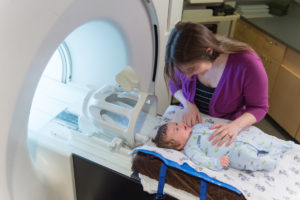This was the subject of a talk given by Center for Healthy Minds Founder and Director Richard Davidson at the 2018 Annual Meeting of the American Association for the Advancement of Science on Feb. 16, titled: How the Mind Informs the Brain: Depression and Well-Being.
“How we experience the world affects us in more ways than we previously thought,” says Davidson, William James and Vilas Professor of Psychology and Psychiatry. “We’re finding that emotions and thoughts can alter neural pathways in the brain in relatively short amounts of time and even affect processes like gene expression and aging.”
Davidson says tapping into the role experience plays in mental health could help scientists and clinicians design better interventions to treat disorders such as anxiety and depression.
This framework stands in contrast to the tendency of neuroscientists to place more value on behavior in lieu of studying experience. In his talk, Davidson made the case for more fully integrating emerging scientific knowledge of the mind-body connection with neuroscience study design.
Not only should individual experience be more fully accounted for and measured in neuroscience studies, Davidson argues, efforts to do so are already revealing previously unknown neural networks that are implicated in well-being and mental health disorders.







